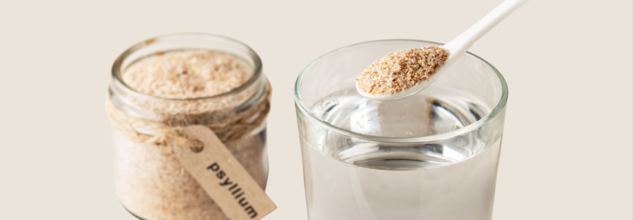
Image Credit: Canva
This 30-Second Trick That Finally Solved My Bloated Stomach
As someone who has written extensively on digestive health, I thought I had tried it all. Yet, despite my best efforts, I often found myself battling severe bloating—episodes so uncomfortable that my jeans felt painfully tight for days. My attempts at dietary tweaks and hydration hacks often left me wondering if true relief was even possible. Then, my father told me to try a simple, life-changing remedy: psyllium husk every night.
It was hard to believe at first: something as innocuous as a teaspoon of powder stirred into a glass of water could make a difference. But desperation can be a strong persuader. It's been a week since I started consuming psyllium husk, and my bloating has significantly subsided. At two months, I continue faithfully to add it to my daily regimen, reaping not just relief but other surprising health benefits.
If you are having issues with bloating or other forms of inconsistent digestion, read on to understand what psyllium husk is and why it can be the panacea you were looking for.
What Is Bloating And How Does Psyllium Help?
Other causes of bloating can be foods that produce gas, chewing gum, or carbonation. However, the biggest cause is often constipation. Psyllium husk is a type of soluble fiber obtained from the seeds of the Plantago ovata plant. It acts as a bulk-forming laxative. The way it works is by absorbing water in the gut and creating a gel-like substance that will make bowel movements smoother and more consistent.
What's powerful is the dual action of fiber of the psyllium:
- Soluble fiber, which has the effect of easing stool through the digestive system due to the lubrication caused.
- In addition, it's insoluble fiber that allows adding bulk for a more productive contraction of the colon.
The stool is released much more effectively with less trouble for the risk of complications including the case of having hemorrhoids.
Also Read: Manage Acid Reflux At Night With 5 Simple Tips For Better Sleep
Other Benefits Of Psyllium Husk
Though widely recognized for its anti-bloating and constipation effects, psyllium husk offers much more.
Improved Gut Health
Psyllium is a prebiotic that supports the growth of good gut bacteria. A well-functioning gut microbiome contributes to immunity, reduced inflammation, and overall health.
Weight Loss
Soluble fiber delays digestion, leaving you feeling fuller for longer. Research has indicated that psyllium husk can aid in weight loss by suppressing appetite and thus preventing overeating.
Blood Sugar Control
Psyllium slows down the absorption of glucose, preventing spikes and crashes in blood sugar levels. In people with type 2 diabetes, it may be a helpful tool to keep blood sugar steady.
Reduced Cholesterol Levels
Soluble fiber binds with cholesterol in the digestive system, removing it from the body. Regular intake of psyllium has been associated with lowering LDL ("bad") cholesterol.
How to Add Psyllium to Your Diet
Adding psyllium to your diet requires a little care to maximize its benefits:
- Start by taking a small dose mixed in 12 ounces of water and increase slowly after every couple of days until the body adapts to added fiber.
- Drink sufficient amounts of water with the addition of psyllium for a comfortable elimination or even reduced discomfort or further bloating. Drink 12 ounces of water with each teaspoon of psyllium.
- Psyllium can be taken at any time, but I've found it most effective in the morning, about an hour before breakfast. Avoid taking it with meals, as it can make you feel overly full.
- To ensure proper absorption of medications, take psyllium at least one hour before or two to four hours after any medications.
Does Psyllium Work Instantly?
Unlike stimulant laxatives, psyllium will not offer quick relief. Most people see improvements in bowel regularity within a few days. Initial side effects such as mild bloating or gas are common but usually resolve within a week as your body adjusts.
Is Psyllium Safe for Daily Use?
For most people, psyllium is safe to take daily. However, it's intended as a supplement, not a long-term replacement for fiber-rich foods like fruits, vegetables, and whole grains. Strive to meet your dietary fiber needs naturally over time.
Psyllium husk transformed my approach to digestive health. It offered relief from persistent bloating and constipation while providing additional benefits like improved gut health, cholesterol reduction, and weight management. Whether you’re dealing with occasional discomfort or chronic bloating, this simple 30-second trick could be your answer.
If you're willing to give it a shot, start small and be patient. Like me, you might find that this humble fiber is the key to a happier, healthier gut.
Disclaimer: This article is for informational purposes only and is not a substitute for professional medical advice. Consult your healthcare provider before starting any new diet or treatment for digestive health.
© 2024 Bennett, Coleman & Company Limited

